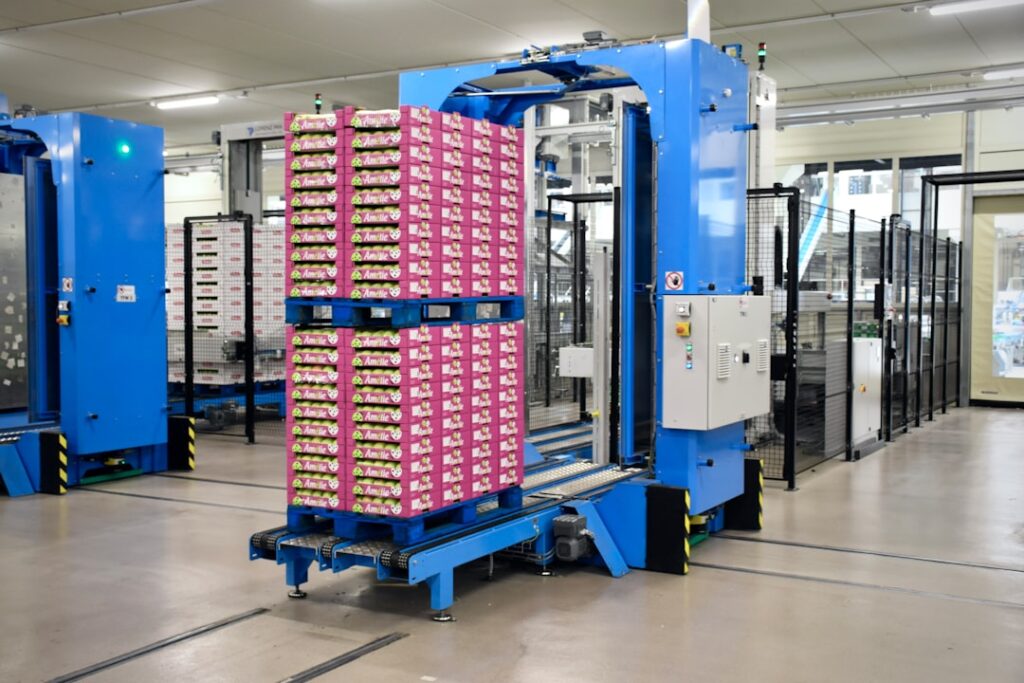
Blockchain technology has undergone a remarkable transformation since its inception in 2008, when an individual or group under the pseudonym Satoshi Nakamoto introduced it as the underlying framework for Bitcoin. Initially, blockchain was perceived primarily as a decentralized ledger for cryptocurrency transactions, allowing users to transfer value without the need for intermediaries like banks. This foundational concept of a distributed ledger, which records transactions across multiple computers, ensured that the data was immutable and transparent, thus fostering trust among users.
The original Bitcoin blockchain was relatively simple, focusing on peer-to-peer transactions and the security of digital currency. As the years progressed, the potential applications of blockchain began to expand beyond cryptocurrencies. The introduction of Ethereum in 2015 marked a significant turning point, as it introduced smart contracts—self-executing contracts with the terms of the agreement directly written into code.
This innovation allowed developers to create decentralized applications (dApps) that could operate on the blockchain, leading to a surge in interest and investment in the technology. The evolution continued with the emergence of various blockchain platforms, such as Hyperledger and Corda, which catered to specific industries and use cases. These developments highlighted blockchain’s versatility and its potential to disrupt traditional business models across various sectors.
Blockchain Applications in Various Industries
The versatility of blockchain technology has led to its adoption across a multitude of industries, each leveraging its unique features to address specific challenges. In finance, for instance, blockchain has facilitated faster and more secure cross-border payments, reducing transaction times from days to mere minutes. Companies like Ripple have developed solutions that utilize blockchain to streamline international money transfers, significantly lowering costs and enhancing efficiency.
Similarly, in the real estate sector, blockchain is being used to simplify property transactions by providing a transparent and tamper-proof record of ownership, thereby reducing fraud and expediting the buying and selling process. In the realm of entertainment, blockchain is revolutionizing how content is distributed and monetized. Platforms like Audius are enabling artists to share their music directly with fans while retaining control over their intellectual property rights.
This shift not only empowers creators but also fosters a more equitable revenue-sharing model compared to traditional music distribution channels. Furthermore, the gaming industry is witnessing the rise of non-fungible tokens (NFTs), which allow players to own unique in-game assets that can be traded or sold on various marketplaces. This innovation has created new economic opportunities for gamers and developers alike, showcasing how blockchain can redefine ownership and value in digital environments.
The Impact of Blockchain on Financial Services

The financial services industry has been one of the most significantly impacted sectors by blockchain technology. Traditional banking systems often rely on centralized databases that can be vulnerable to fraud and cyberattacks. In contrast, blockchain’s decentralized nature enhances security by distributing data across a network of nodes, making it nearly impossible for malicious actors to alter transaction records without consensus from the majority of participants.
This inherent security feature has prompted banks and financial institutions to explore blockchain solutions for various applications, including identity verification, loan processing, and trade finance. Moreover, blockchain has paved the way for the emergence of decentralized finance (DeFi), a movement that seeks to recreate traditional financial systems using blockchain technology. DeFi platforms enable users to lend, borrow, and trade assets without intermediaries, thereby increasing accessibility and reducing costs.
For example, platforms like Aave and Compound allow users to earn interest on their cryptocurrency holdings or take out loans against their digital assets. This democratization of finance has attracted millions of users worldwide, particularly in regions with limited access to traditional banking services. As DeFi continues to grow, it poses both opportunities and challenges for regulators who must navigate this rapidly evolving landscape.
Blockchain and Supply Chain Management
| Metrics | Data |
|---|---|
| Blockchain Adoption in Supply Chain | Increasing |
| Supply Chain Transparency | Improved |
| Counterfeit Products Detection | Enhanced |
| Transaction Speed | Increased |
| Cost Savings | Significant |
Supply chain management is another area where blockchain technology is making significant strides. Traditional supply chains often suffer from inefficiencies due to a lack of transparency and traceability. By implementing blockchain solutions, companies can create a shared ledger that records every transaction along the supply chain, from raw material sourcing to final product delivery.
This transparency allows stakeholders to track products in real-time, ensuring authenticity and reducing the risk of fraud or counterfeiting. For instance, companies like IBM and Maersk have collaborated on TradeLens, a blockchain-based platform designed to improve global trade by providing end-to-end visibility across supply chains. By digitizing shipping documents and automating processes through smart contracts, TradeLens reduces delays and enhances collaboration among various parties involved in shipping logistics.
Additionally, food safety is another critical application; organizations like Walmart are using blockchain to trace the origin of food products quickly. In the event of a contamination issue, they can identify affected products within seconds rather than days or weeks, ultimately protecting consumers and enhancing food safety standards.
Blockchain in Healthcare and Pharmaceuticals
The healthcare sector stands to benefit immensely from blockchain technology due to its potential for improving data security, interoperability, and patient privacy. Medical records are often fragmented across various healthcare providers, leading to inefficiencies and potential errors in patient care. By utilizing blockchain as a secure repository for electronic health records (EHRs), patients can have greater control over their data while allowing authorized healthcare providers access to complete medical histories when needed.
Pharmaceutical companies are also exploring blockchain for supply chain integrity and drug traceability. The opioid crisis has underscored the importance of tracking medications from manufacturers to consumers to prevent counterfeit drugs from entering the market. Blockchain can provide an immutable record of each transaction along the supply chain, ensuring that drugs are authentic and safely delivered to pharmacies and patients.
Companies like Chronicled are already implementing blockchain solutions to enhance drug traceability and compliance with regulations such as the Drug Supply Chain Security Act (DSCSA) in the United States.
The Role of Blockchain in Government and Public Services

Governments around the world are beginning to recognize the transformative potential of blockchain technology in enhancing public services and governance. One significant application is in voting systems; traditional voting methods often face challenges related to security, transparency, and accessibility. By implementing blockchain-based voting systems, governments can ensure that votes are securely recorded and easily verifiable while maintaining voter anonymity.
Countries like Estonia have already adopted e-voting systems based on blockchain technology, allowing citizens to participate in elections remotely while ensuring the integrity of the electoral process. Additionally, blockchain can improve public record management by providing a secure and transparent way to store vital records such as birth certificates, land titles, and business licenses. This approach not only reduces bureaucratic inefficiencies but also minimizes the risk of fraud or loss of important documents.
For example, Georgia has implemented a blockchain-based land registry system that allows citizens to buy and sell property with greater confidence in ownership rights. By leveraging blockchain technology, governments can enhance trust in public institutions while streamlining processes for citizens.
The Future of Blockchain in 2025 and Beyond
As we look toward 2025 and beyond, the future of blockchain technology appears promising yet complex. The continued evolution of consensus mechanisms will likely play a crucial role in addressing scalability issues that have hindered widespread adoption. Innovations such as sharding and layer-2 solutions aim to enhance transaction throughput while maintaining security and decentralization.
Furthermore, interoperability between different blockchains will become increasingly important as organizations seek to collaborate across platforms without sacrificing their unique advantages. The integration of artificial intelligence (AI) with blockchain could also unlock new possibilities for data analysis and decision-making processes across industries. For instance, AI algorithms could analyze vast amounts of data stored on blockchains to identify patterns or anomalies that may indicate fraud or inefficiencies within supply chains or financial transactions.
As these technologies converge, we may witness the emergence of more sophisticated decentralized applications that leverage both AI and blockchain capabilities.
Challenges and Opportunities for Blockchain Adoption
Despite its potential benefits, the widespread adoption of blockchain technology faces several challenges that must be addressed for it to reach its full potential. One significant hurdle is regulatory uncertainty; governments around the world are still grappling with how to classify cryptocurrencies and blockchain-based assets within existing legal frameworks. This ambiguity can deter businesses from investing in blockchain solutions due to fears of future regulatory crackdowns or compliance issues.
Moreover, scalability remains a pressing concern as many existing blockchains struggle with high transaction volumes during peak periods. Solutions such as proof-of-stake consensus mechanisms or sidechains are being explored to alleviate these issues; however, they require careful implementation to ensure security is not compromised. On the other hand, these challenges present opportunities for innovation within the space as developers work towards creating more efficient systems.
In conclusion, while there are obstacles to overcome in the journey toward widespread blockchain adoption, the potential rewards are substantial. As industries continue to explore innovative applications for this transformative technology, we can expect significant advancements that will reshape how we conduct business, interact with one another, and manage our digital identities in an increasingly interconnected world.
FAQs
What is blockchain technology?
Blockchain technology is a decentralized, distributed ledger that records transactions across many computers in such a way that the registered transactions cannot be altered retroactively.
How is blockchain being used outside of cryptocurrency in 2025?
In 2025, blockchain technology is being used in various industries such as supply chain management, healthcare, voting systems, real estate, and digital identity verification. It is also being used for smart contracts, decentralized finance, and as a means of combating fraud and counterfeiting.
What are some examples of blockchain being used in supply chain management?
Blockchain is being used in supply chain management to track the origin and movement of products, ensuring transparency and authenticity. For example, it is being used to trace the journey of food products from farm to table, and to verify the authenticity of luxury goods.
How is blockchain being used in healthcare?
In healthcare, blockchain is being used to securely store and share patient records, track the authenticity of pharmaceuticals, and facilitate medical research by securely sharing data.
What are smart contracts and how are they being used with blockchain?
Smart contracts are self-executing contracts with the terms of the agreement between buyer and seller being directly written into code. They are being used with blockchain to automate and enforce the terms of an agreement without the need for intermediaries.
How is blockchain being used for digital identity verification?
Blockchain is being used for digital identity verification by providing a secure and tamper-proof way to store and verify personal identity information. This can be used for secure access to online services and for verifying the identity of individuals in various transactions.





